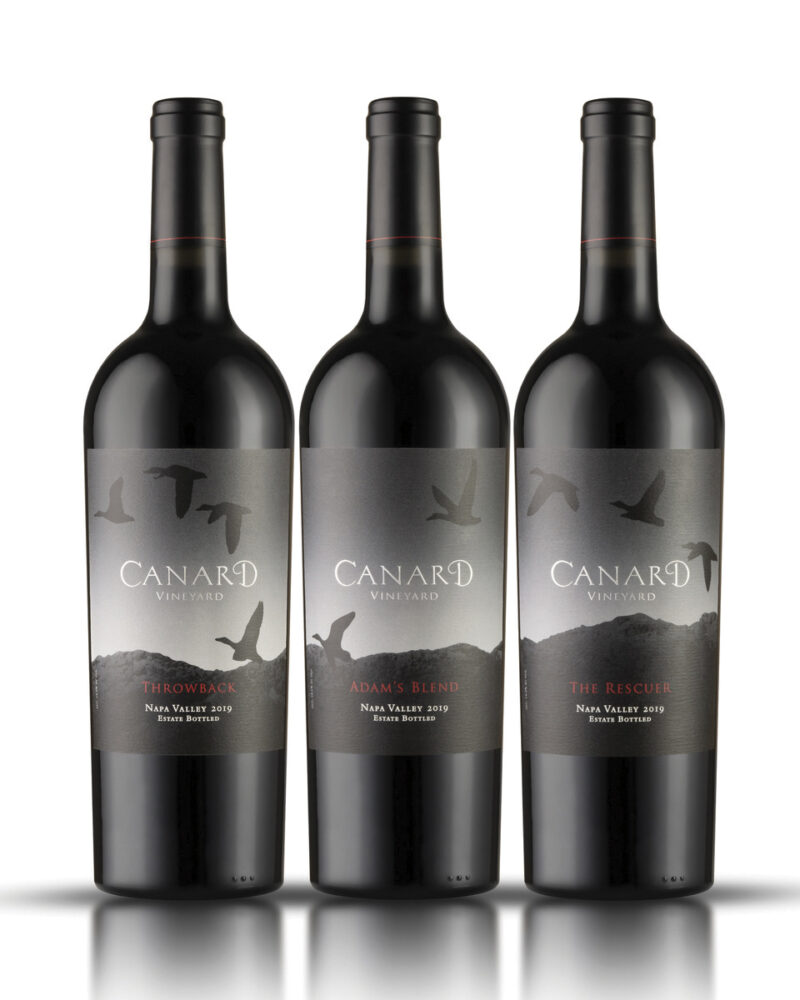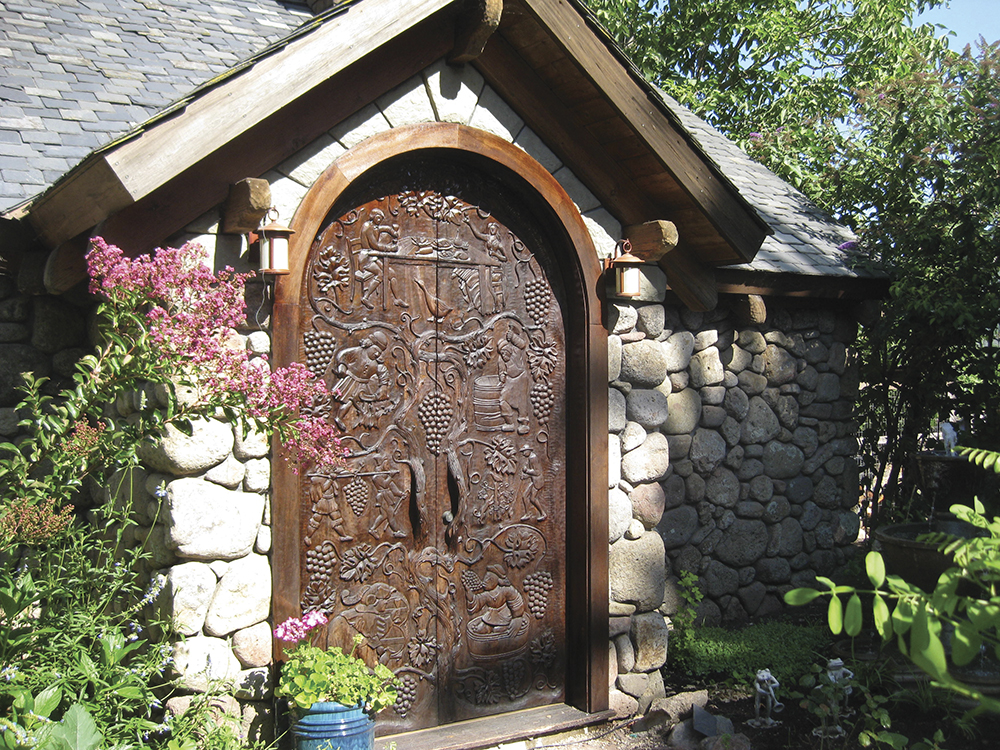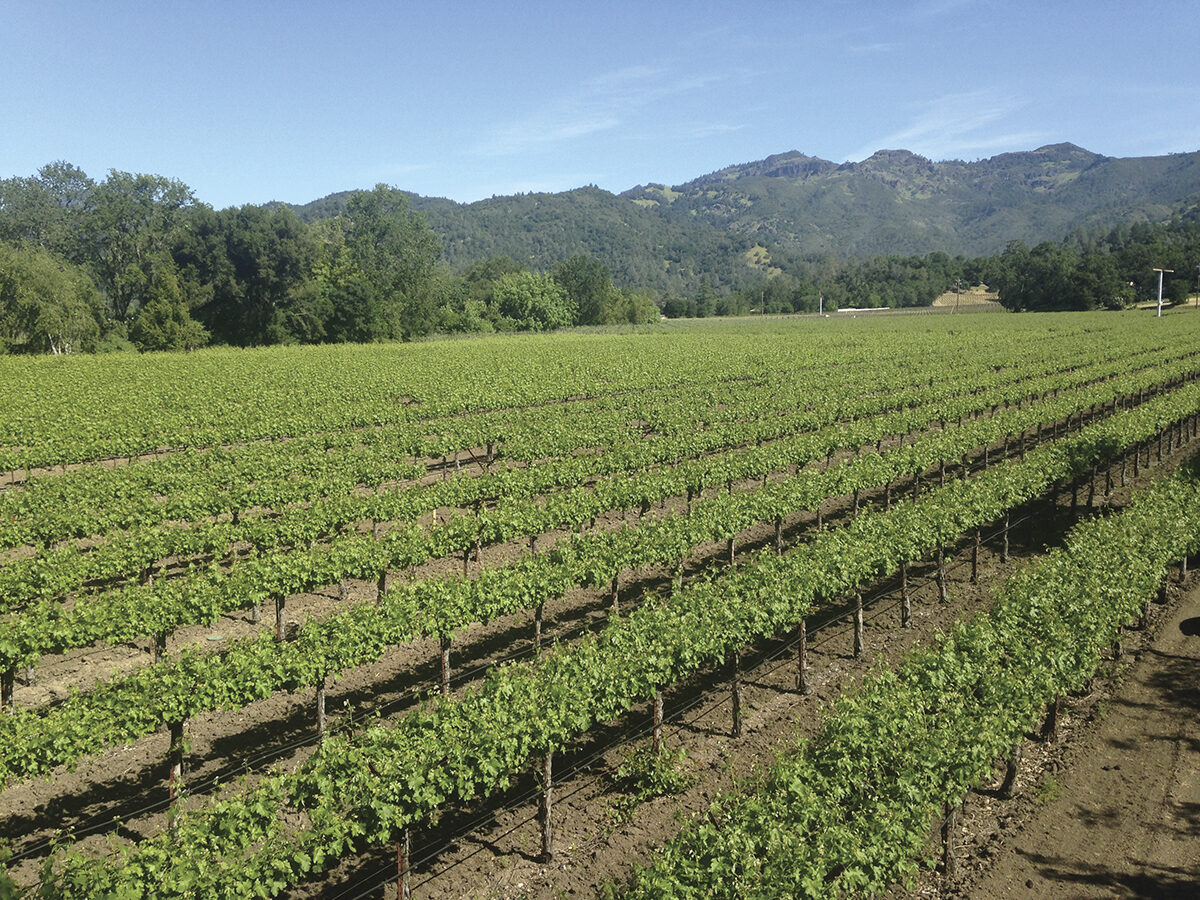Canard Vineyard has been making hand-crafted estate wines in Napa Valley since 1984. However, it has remained a bit of a secret as they produce a very limited number of cases each year and, until recently, were not open to the public for tastings. Most of their highly coveted wines go to their loyal members, who receive an annual allocation. The remaining few cases make it to some of the top restaurants in the U.S. and a handful of fine wine shops. But now they have finally opened their door– after 40 years– to host a few private tastings a week.
 The historic Calistoga vineyard was established in the mid-1800s by one of Napa’s founding fathers, Reason P. Tucker, who acquired the property in a land grant from General Vallejo for his help in rescuing the Donner Party. Zinfandel was planted before the turn of the last century, and remarkably, six acres of those ancestral vines still stand today. Current owners, Rich and Carolyn Czapleski, recall how a phone call in the early 80s from Robert Mondavi and Joseph Phelps saved those old vines: “We were about to pull them out and replant with Cabernet Sauvignon, but those two calls changed our minds. They mentioned how the vineyard was part of the history of Napa Valley and that it was an ancient field blend of Italian grape varietals that could never be replicated. So, we didn’t pull them out. And now, some of those vines are 140 years old. They don’t produce much, but what they do give us makes an exceptional wine.”
The historic Calistoga vineyard was established in the mid-1800s by one of Napa’s founding fathers, Reason P. Tucker, who acquired the property in a land grant from General Vallejo for his help in rescuing the Donner Party. Zinfandel was planted before the turn of the last century, and remarkably, six acres of those ancestral vines still stand today. Current owners, Rich and Carolyn Czapleski, recall how a phone call in the early 80s from Robert Mondavi and Joseph Phelps saved those old vines: “We were about to pull them out and replant with Cabernet Sauvignon, but those two calls changed our minds. They mentioned how the vineyard was part of the history of Napa Valley and that it was an ancient field blend of Italian grape varietals that could never be replicated. So, we didn’t pull them out. And now, some of those vines are 140 years old. They don’t produce much, but what they do give us makes an exceptional wine.”
 Rich and Carolyn have spent the last four decades restoring the property, cultivating the highest quality Cabernet Sauvignon, Merlot, Cabernet France, Petit Verdot, and Zinfandel. “We dry farm the entire vineyard,” said winemaker Brian Graham. “Zero irrigation is used in growing our grapes. We practice the same farming techniques found in Bordeaux, where I learned to make wine. Forcing the grapes to find their own water gives them character and creates small but intensely flavorful grapes.” Brian Graham added, “The drawback is the low yield, which is why most of Napa will not dry farm. But we choose to sacrifice yield for quality and a sense of terroir.”
Rich and Carolyn have spent the last four decades restoring the property, cultivating the highest quality Cabernet Sauvignon, Merlot, Cabernet France, Petit Verdot, and Zinfandel. “We dry farm the entire vineyard,” said winemaker Brian Graham. “Zero irrigation is used in growing our grapes. We practice the same farming techniques found in Bordeaux, where I learned to make wine. Forcing the grapes to find their own water gives them character and creates small but intensely flavorful grapes.” Brian Graham added, “The drawback is the low yield, which is why most of Napa will not dry farm. But we choose to sacrifice yield for quality and a sense of terroir.”
And sacrifice they do, their total production for 23 acres is less than 3800 cases of wine, which is why the wines are often difficult to obtain. As they celebrate their 40th year of making wine in Napa Valley, they are thrilled to finally be able to host a limited number of guests each week at the historic vineyard for private tastings. Managing Director Adam Fox stated, “Canard Vineyard is old-school Napa Valley. Visiting here is a bit like stepping back in time when the Valley was mostly just grape growers and winemakers. There is an authenticity here that is hard to find today, and we love to share that with our guests.”

